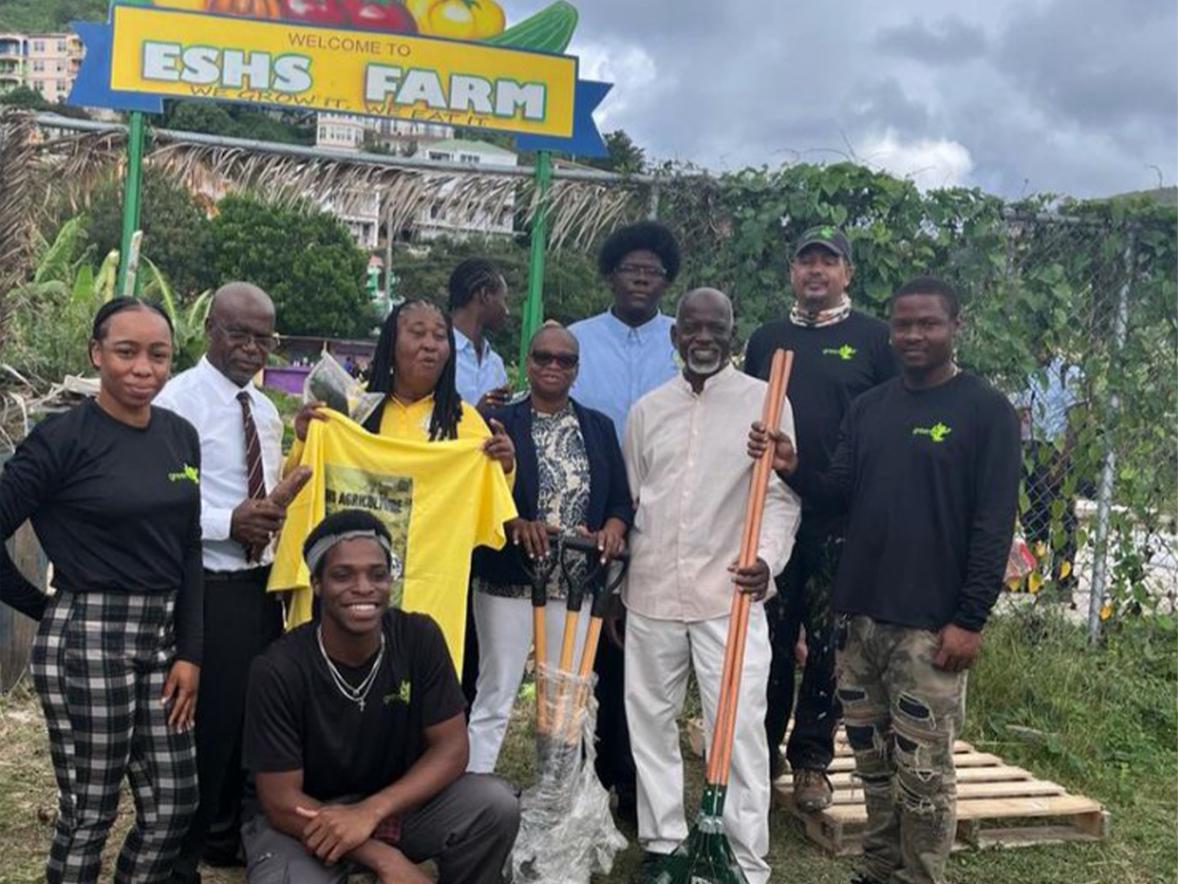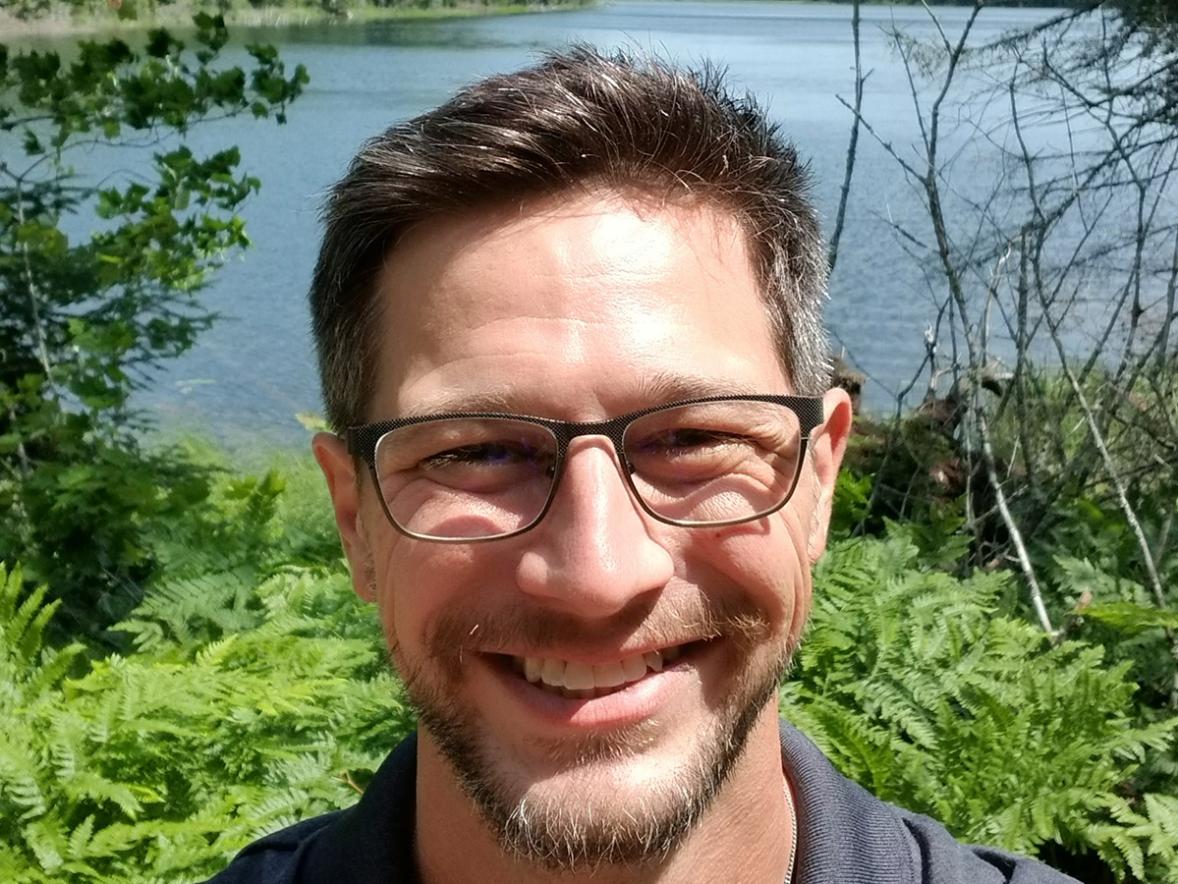East of Puerto Rico in the Caribbean Sea lies the British Virgin Islands, an archipelago made up of four main islands and more than 50 smaller islands.
As senior project manager at Green VI, a nonprofit focused on environmental improvements and sustainable practices on the British Virgin Islands, Natasha Harrigan seeks to create positive human behavior change to lessen the impact of stressors on the environment. She has been with Green VI for four years.
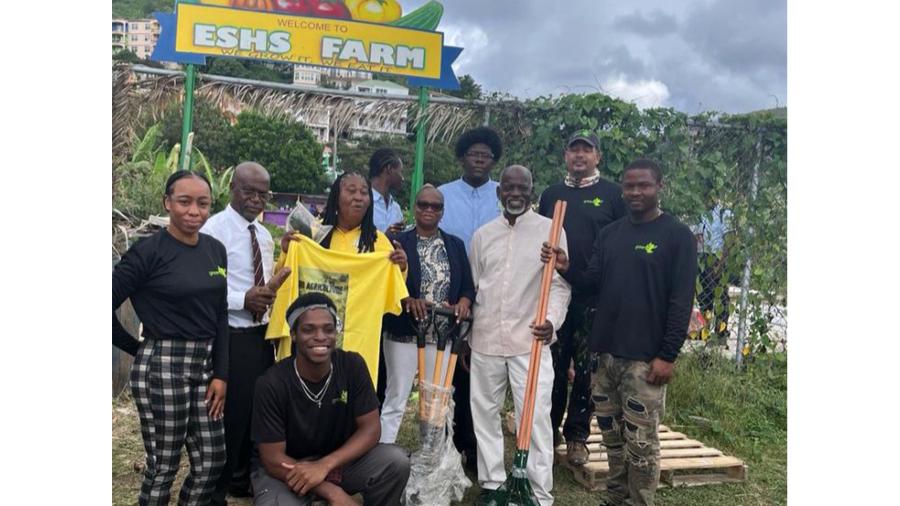
“Coming from a territory made up of small islands, rocks and cays that are filled with endemic flora and fauna, I understand the intricacy of small ecosystems and how interconnected they all are. The loss of any part of these systems can have lasting effects. The conservation of our wild places is very important, more now than ever due to climate change and human impact,” said Harrigan, a 2020 P.S.M. conservation biology alum.
Harrigan, who previously worked with the National Parks Trust of the Virgin Islands for seven years, has contributed to stakeholder meetings on conservation and sustainability of the territory, including those attended by the British Virgin Islands Premier Natalio Wheatley.
She is also responsible for the infrastructural and curriculum development of 11 public school garden classrooms, including at BVI’s largest high school, Elmore Stoutt High School, in Road Town.
“I mostly work with students in the school gardens. The trickle effect of the behavior change from students to parents is always great and proves positive results, which I am always proud of,” she said.
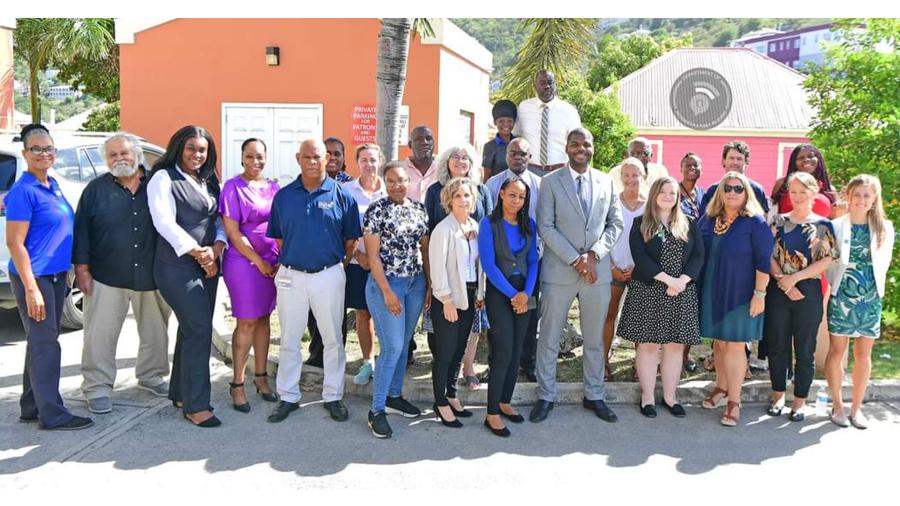
Harrigan is responsible for the development and maintenance of two Green VI Ecopark Gardens and the development of the territory’s organics management plan.
“This plan will have long-lasting effects for future generations, and I hope that I can impact my community by contributing to a much cleaner, greener, healthier environment for our territory,” she said.
Currently, at least 40% of food and paper waste enters the territory’s landfill. Through the organics management plan, Harrigan hopes to:
- Create a healthy compost product that can be used by local gardeners and farmers.
- Contribute to food security, as the territory is susceptible to hurricanes.
- Reduce the amount of methane gas released into the atmosphere at the landfill.
- Reduce greenhouse gas pollution.
“Sustainable practices should be backed by legislation, but be balanced by taking into account the social, economic and environmental perspectives of these conservation efforts. This is very important in order to have healthy environments and resources for future generations,” she said.
Harrigan chose UW-Stout's P.S.M. in conservation biology program because of her keen interest and love of the subjects offered, such as biostatistics and conservation biology.
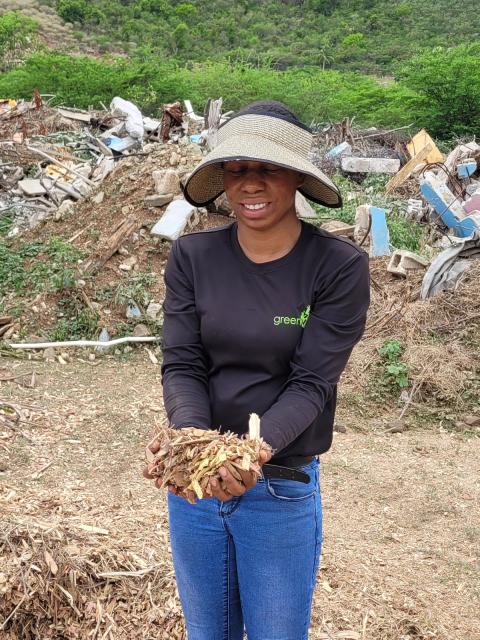
“I also liked having the option to write a paper, conduct research or simply fulfill credits through writing courses. This flexibility made me feel relaxed in knowing that as I maneuvered through the program, I would be able to choose the best option that could help me to be more educated and contribute to conservation efforts in my community,” said Harrigan, who completed her professional science master’s degree in the midst of two hurricanes.
“Natasha’s story is one of excellence through perseverance,” said biology Professor and P.S.M. Program Director Mike Bessert. “In 2017, when much of the island’s infrastructure was obliterated, and the location where she had carried out her co-op was completely flattened, I consistently tried to reach her to no avail for several months and presumed the worst. Finally, I received a reply to one of my messages.
“Natasha made her way to, I think, the sole remaining cell tower in the area that regained function and was able to communicate. Over time, the towns and villages recovered. Given the devastation and disruption, she could have easily bowed out of the program, but she resumed as quickly as she could and completed the program in stellar fashion,” he said.





